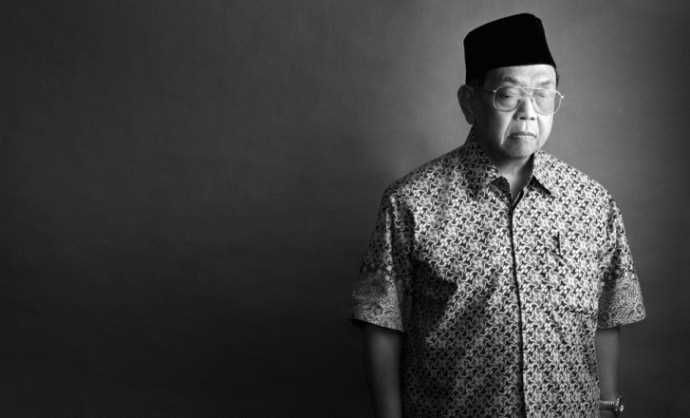
Gus Dur, was conceived Sept. 7, 1940, Denanyar, East Java, Dutch East Indies[now Indonesia]—kicked the bucket Dec. 30, 2009, Jakarta, Indon.), Indonesian Muslim religious pioneer and legislator who was a leader of Indonesia from 1999 to 2001.
Wahid's granddads were among the authors of the world's biggest Islamic association, the 25-million-part Nahdatul Ulama (NU). Wahid contemplated the Qur?an seriously at an East Javan pesantren (religious all-inclusive school) established by his fatherly granddad, Hasyim Asy?ari, and at foundations in Jakarta when his dad was Indonesia's first cupboard serve for religion. In 1965 Wahid earned a grant to learn at the lofty Al-Azhar University in Cairo, however, he swarmed against the traditionalism of its personnel, and, rather than concentrate more sacred text, he ate up New Wave movies, read French and English books, and contemplated Marxism. Leaving without taking a degree, he moved to Baghdad, where he soon started pulling in consideration with his religious compositions.
In the wake of coming back to Indonesia in the late 1960s, Wahid turned into a researcher. He was lifted to the post of general administrator of the NU in 1984. The association at that point separated its connections to a Muslim-construct political gathering and focused with respect to social work and training. The administrators of 6,500 pesantren across the country—the foundation of the NU's help—contradicted any antigovernment moves. Wahid was regardless broadly seen to exhibit a danger to the political expert for his advancement of a dream for the NU that would, in his words, "advance toward the change of society, socially and socially."
As NU boss, Wahid was a standout amongst the most regarded figures in Indonesian Islam and the most politically dynamic. He headed the political exchange aggregate Forum Demokrasi, which invited dissenters and human rights, advocates. Wahid talked honestly on national issues to priests, ambassadors, columnists, and other people who counseled him. Straying from the positions held by the pioneers of numerous Muslim nations, he proposed normalizing ties with Israel and fought that the contention in Bosnia and Herzegovina was not religious. Numerous appreciated his barrier of Indonesia's Christian minority. Indeed, even the capable military was quick to keep up great connections to an apparent bulwark against radical Islam.
In 1990 Wahid declined to join the new Association of Muslim Intellectuals, blaming its administrator, B.J. Habibie, protégé of President Suharto and the nation's examination and innovation serve, of utilizing Islam to pick up control. Faultfinders and even relatives yielded, in any case, that Wahid couldn't separate his own particular political position from NU's needs. In 1994 Suharto followers inside the NU attempted futile to end Wahid's chairmanship. In the wake of the Asian financial emergency (1997– 98) that constrained the abdications of Suharto and his successor Habibie, Wahid was chosen a president in 1999. He was the primary contender to win the administration through a vote by the People's Consultative Assembly (Majelis Permusyawaratan Rakyat; MPR), rather than the prior, agreement looking for a process. Monetary and political insecurity, combined with a debasement emergency in which Wahid himself was ensnared, prompted his prosecution and expulsion from office in 2001. In the wake of leaving office, Wahid empowered interfaith exchange for the advancement of world peace.
Cheers!